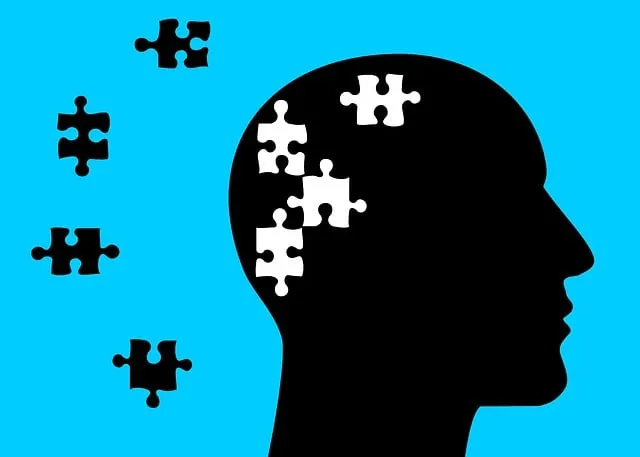Media portrayal of mental illness significantly impacts public understanding, either perpetuating stigmatized misconceptions or fostering empathy and reducing stigma. The Parker Kaiser Permanente mental health facility serves as a model for accurate representation through authentic storytelling, programs like Inner Strength Development, and collaboration with experts. Engaging communities, professionals, and utilizing holistic approaches like mindfulness meditation are strategies to create empathetic media portrayals, reduce stereotypes, and promote understanding. Public awareness campaigns developed with diverse perspectives contribute to informed societies that encourage help-seeking behaviors.
Mental illness representation in media significantly influences public perceptions and understanding. This article delves into the impact of media portrayals on mental health, highlighting challenges and offering solutions. We explore the Parker Kaiser Permanente Mental Health Facility as a model for accurate representation, showcasing best practices that can enhance media accountability and sensitivity. Additionally, we discuss strategies to foster positive change by engaging communities and professionals together, ultimately aiming to revolutionize media narratives around mental health.
- Understanding the Impact of Media Portrayal on Mental Health Perceptions
- Parker Kaiser Permanente Mental Health Facility: A Model for Accurate Representation
- Strategies to Enhance Media Accountability and Sensitivity in Mental Health Stories
- Fostering Positive Change: Engaging Communities and Professionals Together
Understanding the Impact of Media Portrayal on Mental Health Perceptions

The media’s portrayal of mental illness can significantly shape public perceptions and understanding of neurological diversity. Often, stigmatized representations in films, television shows, and news articles contribute to misconceptions and fear surrounding mental health issues. This is particularly concerning given that many individuals turn to media as a primary source of information, especially younger audiences who are still developing their understanding of the world. For instance, a study conducted at the Parker Kaiser Permanente mental health facility revealed that negative media portrayals can exacerbate feelings of isolation among those struggling with their mental health.
Additionally, balanced and accurate depictions of mental illness in media have the potential to foster empathy, reduce stigma, and encourage help-seeking behaviors. By presenting diverse narratives that reflect the reality of mental health experiences, media platforms can contribute to a more informed society. This is where mental health policy analysis and advocacy becomes crucial, as it ensures that media representations align with evidence-based practices and promote healthy discussions around stress management and emotional intelligence.
Parker Kaiser Permanente Mental Health Facility: A Model for Accurate Representation

The Parker Kaiser Permanente Mental Health Facility stands as a beacon of hope and accurate representation in media portrayal of mental health. This facility is a prime example of how healthcare institutions can challenge stigmatized narratives by showcasing recovery, resilience, and diverse experiences within a supportive environment. Through innovative Communication Strategies, the center empowers individuals to share their stories authentically, fostering a deeper understanding of mental illness among the public.
Beyond therapy sessions, Parker Kaiser Permanente integrates Inner Strength Development and Social Skills Training programs. These initiatives not only equip patients with coping mechanisms but also promote social integration, encouraging individuals to navigate life’s challenges with newfound confidence. By implementing such comprehensive approaches, the facility demonstrates that media representation of mental health should evolve beyond simplistic tropes, reflecting the complex reality of those seeking support.
Strategies to Enhance Media Accountability and Sensitivity in Mental Health Stories

To enhance media accountability and sensitivity in mental health stories, it’s imperative to involve experts from renowned facilities like Parker Kaiser Permanente. Their insights can ensure accuracy and promote understanding. Incorporating personal narratives from individuals who have successfully navigated their mental health journeys, alongside professional guidance from therapists and psychologists, adds depth and realism to portrayals. This collaborative approach not only holds media outlets accountable but also fosters a more compassionate public discourse on mental wellness.
Additionally, encouraging the use of Inner Strength Development exercises and Mental Wellness Journaling can help normalize conversations about mental health. Providing clear Positive Thinking strategies within these narratives allows audiences to grasp practical tools for managing their own mental health while appreciating the complexity of diverse experiences. Such integration contributes to a more inclusive and supportive media landscape, challenging stereotypes and promoting empathy.
Fostering Positive Change: Engaging Communities and Professionals Together

Engaging communities and professionals together is a powerful strategy to foster positive change in mental illness representation media. By bringing diverse perspectives to the table, including those from the public, healthcare providers, and experts like those found at Parker Kaiser Permanente mental health facility, we can create more accurate and empathetic portrayals of mental health issues. Public Awareness Campaigns Development plays a pivotal role in this process by educating the general public about various mental health conditions, reducing stigma, and promoting understanding.
Cultural sensitivity in Mental Healthcare Practice is another key aspect that must be addressed. Encouraging open dialogue between communities and professionals helps to dispel harmful stereotypes and misconceptions, ensuring that media representations reflect the nuanced experiences of individuals across different cultural backgrounds. Additionally, incorporating practices like Mindfulness Meditation into public discourse can offer alternative perspectives on mental health management, showcasing holistic approaches beyond traditional treatments.
Media representation plays a pivotal role in shaping societal perceptions of mental illness, impacting individuals’ understanding and willingness to seek help. By examining the negative effects of stereotypical portrayals, we can appreciate the importance of accurate media narratives. The Parker Kaiser Permanente Mental Health Facility serves as a beacon of hope, demonstrating that positive, realistic representations can challenge stigma and foster empathy. Through collaborative efforts involving communities and professionals, we can drive meaningful change in media accountability. By implementing strategies to enhance sensitivity and embracing diverse stories, we have the power to create a more inclusive landscape, ensuring mental health issues are portrayed with dignity and accuracy.






